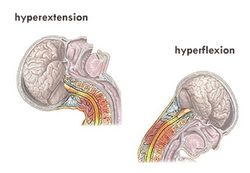Types of Chiropractic Care For Various Needs
Stage #1: Relief Chiropractic Also known as pain management, this type of chiropractic care is done on patients who suffer from any form of pain or discomfort. The purpose of this treatment is to provide immediate relief. Stage #2: Corrective Chiropractic This is a more advanced type of chiropractic care. Corrective care is for patients who no longer have pain, but whose root cause of their pain problem still exists. Stage #3: Maintenance Chiropractic As the name implies, this type of chiropractic care is intended to sustain any form of treatment already administered to a patient with spine problems. Stage #4: Chiropractic Wellness Care Wellness care is a lifestyle and a change in paradigm. It is the action of no longer running away from illness but rather the purposeful lifestyle of moving toward optimum health. It helps keep your spine flexible and your joints movable and healthy. It helps improve posture, and thus energy levels. It helps remove pressure from your spinal cord allowing your nerves to work properly. It helps foster a more responsive nervous system, reducing chances of "throwing your back out" due to poor muscular coordination. A STUDY LOOKS AT CHIROPRACTIC FOR NON-MUSCULOSKELETAL CONDITIONS A review study examines the use of chiropractic care for non-musculoskeletal conditions. The analysis pooled data on 179 papers addressing 50 different non-musculoskeletal conditions. Findings showed that “evidence from controlled studies and usual practice supports chiropractic care (the entire clinical encounter) as providing benefit to patients with asthma, cervicogenic vertigo, and infantile colic. Evidence was promising for potential benefit of manual procedures for children with otitis media and elderly patients with pneumonia.” In addition, “for the few studies that did report, adverse effects of spinal manipulation for all ages and conditions were rare, transient, and not severe.” Journal of Alternative & Complementary Medicine – June 2007;13:491-512. www.liebertpub.com/acm |
New Patient SpecialINJURY IMPEDES NEURAL FUNCTION
 Northridge in Northridge
Another study demonstrates that musculoskeletal pain may affect brain function. The new analysis looked at 160 intercollegiate athletes. The subjects underwent neurocognitive testing. Of this group, 80 then endured a non-contact related anterior cruciate ligament (ACL) knee injury. Subsequent testing revealed significantly lower scores on reaction times, neural processing, visual memory and verbal memory. American Journal of Sports Medicine – June 2007;35:943-48. ajs.sagepub.com |
rel=”author”>Masoud Shamaeizadeh

